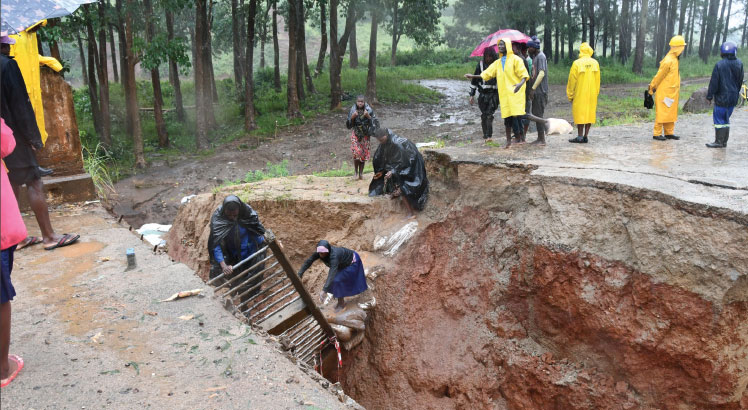Malawi needs to invest $46.33 billion (about K54.9 trillion) up to 2040 or $2.21 billion (about K2.56 trillion) annually to deal with effects of climate change, an African Development Bank (AfDB) climate change assessment shows.
The AfDB report says estimates from economic modelling indicate that climate change contributes to reducing the country’s annual gross domestic product (GDP) growth by at least five percent each year.
To build resilience, the report said Malawi needs to prioritise green growth and climate action to achieve its national development objective to attain middle-income status by 2030 as outlined in Malawi 2063, the country’s long-term development strategy.
Reads the report: “A World Bank analysis shows that climate change will impose large costs on the economy and on already vulnerable households. Climate change could reduce Malawi’s GDP growth by three to nine percent by 2030, six to 20 percent by 2040 and eight to 16 percent by 2050.”
The report says the average climate financing flows for 2019 was $512 million whle for 2020, it was $583.8 millionand indicating a 16.3 percent increase over that in 2019.
National Planning Commission spokesperson Thom Khanje stressed the need for the private sector to join hands with government, or risk throwing any of the country’s development plans under the bus.

He said: “If you look at issues of climate change adaptation, most of them are to do with agriculture production, which in any economy, is done by the private sector. We need to have a dynamic private sector that can look at climate change as an opportunity and come up with various products and services that can help consumers.”
Malawi 2063 enabler seven on environmental sustainability highlights three key actions, including embracing ecosystem-based approaches in managing the environment with harmonised legislation.
Minister of Environment and Climate Change Michael Usi said the private sector is key, but cannot progress if the human capital is always affected by climate change.
He said: “For the private sector, their progress, development is based on the nature of environment within which they operate. In this case,climate change is affecting that environment, when people are struggling, it means the private sector is also struggling, if infrastructure like in the health sector is paralysed, it means there will be no healthy human capital.”
Department of Climate Change and Meteorological Services director general Lucy Mtilatila earlier acknowlegded the existence of a knowledge gap and pleaded with people to understand that extreme events will be common; hence, the need to enhance resilience.
Parliament passed the new Disaster Risk Management law which establishes a committee which will principally be responsible for providing leadership in the development, coordination and implementation of disaster risk management strategies and interventions.
Source: The Nation_Wednesday, October 4, 2023_ By Joseph Mwale
